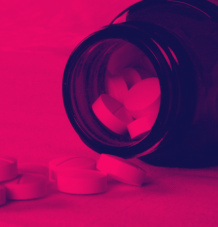Drug effect on guts studied
 A large proportion of commonly prescribed, non-antibacterial pharmaceuticals appear to affect the growth of the bacteria in our guts.
A large proportion of commonly prescribed, non-antibacterial pharmaceuticals appear to affect the growth of the bacteria in our guts.
A large-scale screen of the human gut microbiota, which is published online this week in Nature, found about a quarter of readily-available drugs have an impact.
Drugs can have both beneficial and unwanted effects.
Research is beginning to show that particular drugs — including antidiabetic, non-steroidal anti-inflammatory, and atypical antipsychotic medications — can change the composition of the gut microbiota, despite being designed to act on human cells rather than against bacteria.
In a recent study, researchers used bacterial cell cultures to screen over 1,100 marketed drugs — including antibacterials, antivirals, drugs that act on human cells, and veterinary drugs — against 40 common bacteria strains that are representative of those found in the human gut.
They found that 27 per cent of the tested drugs — and 24 per cent of the drugs designed to act on human cells, including members from each therapeutic class — inhibited the growth of at least one species of gut bacterium.








 Print
Print